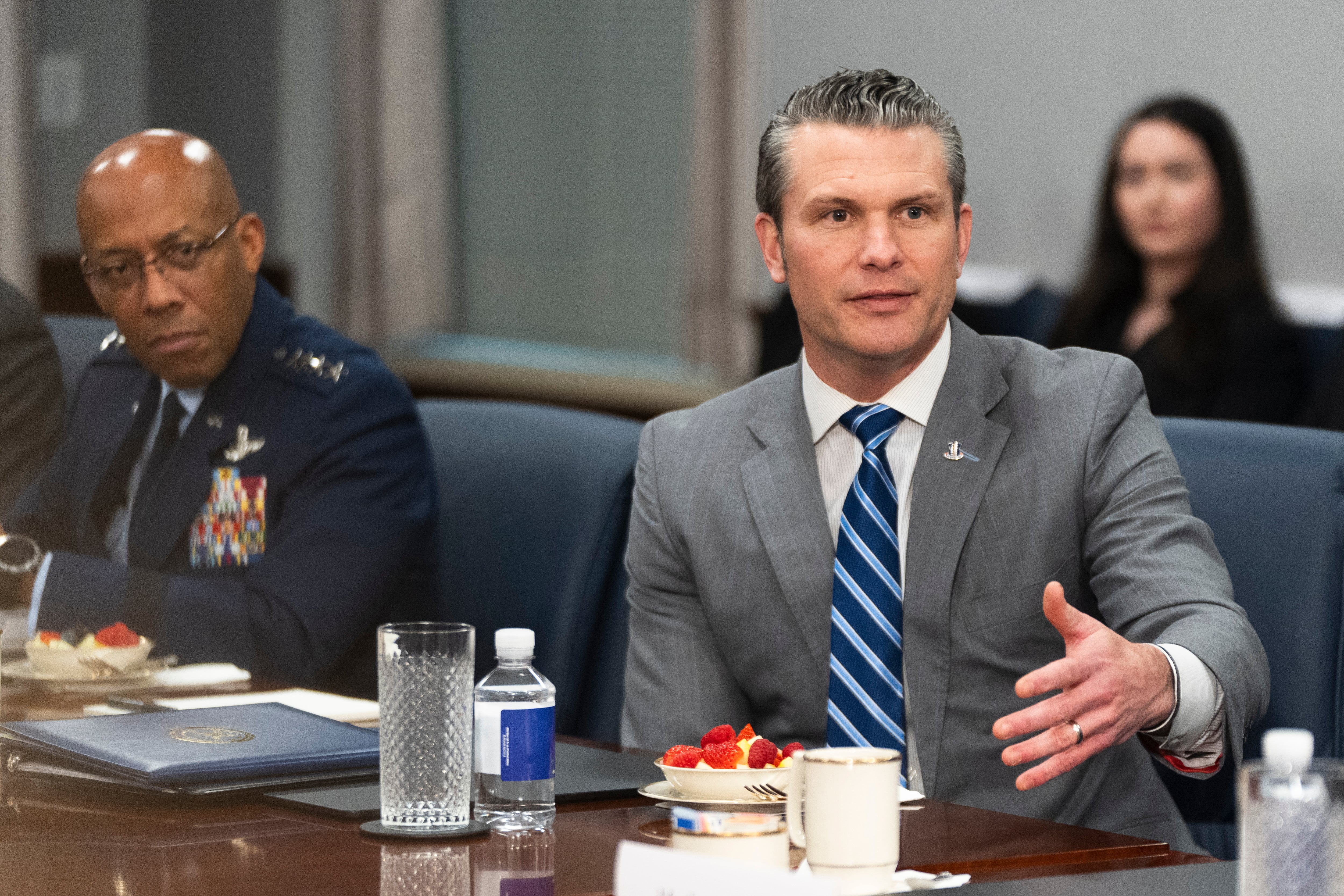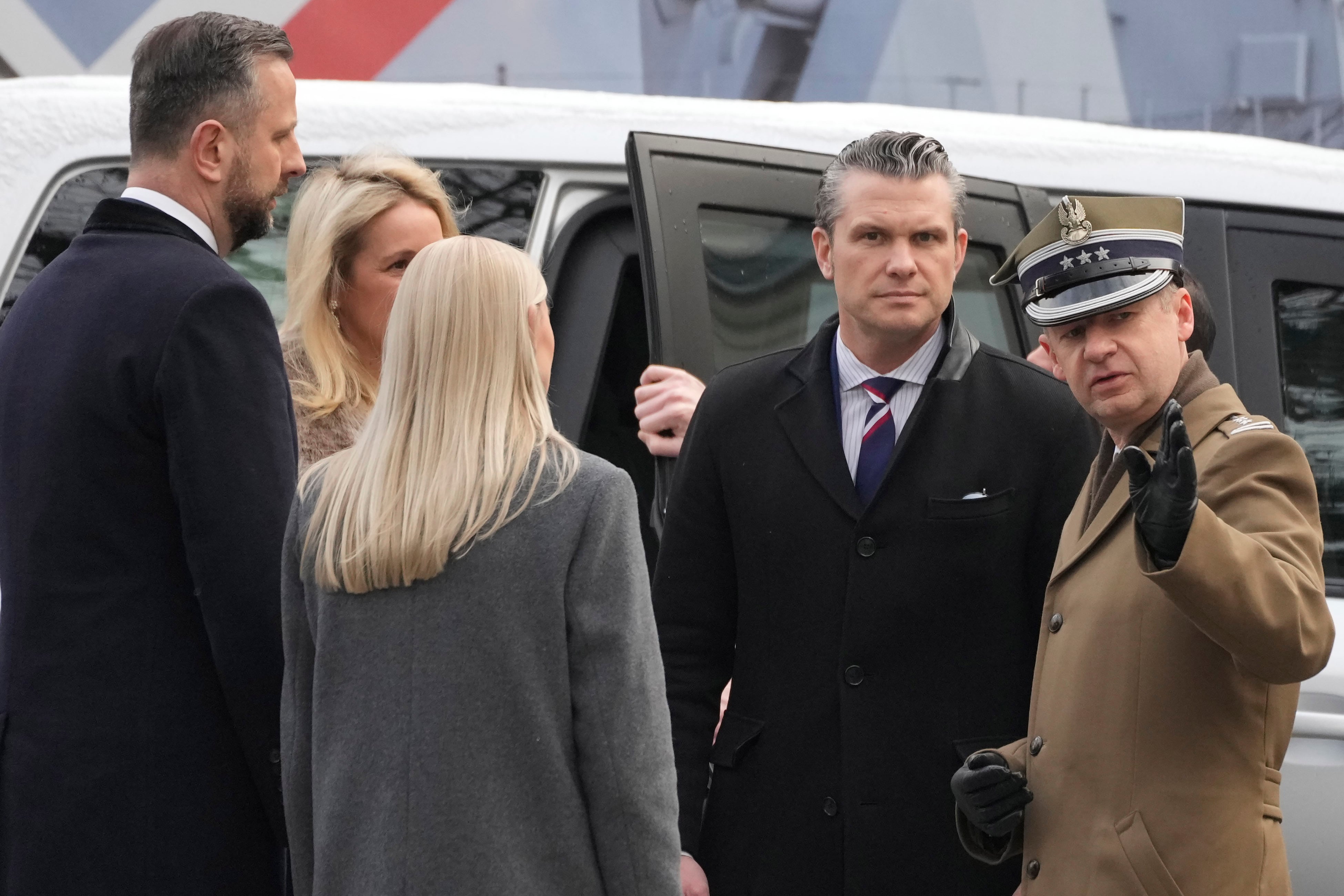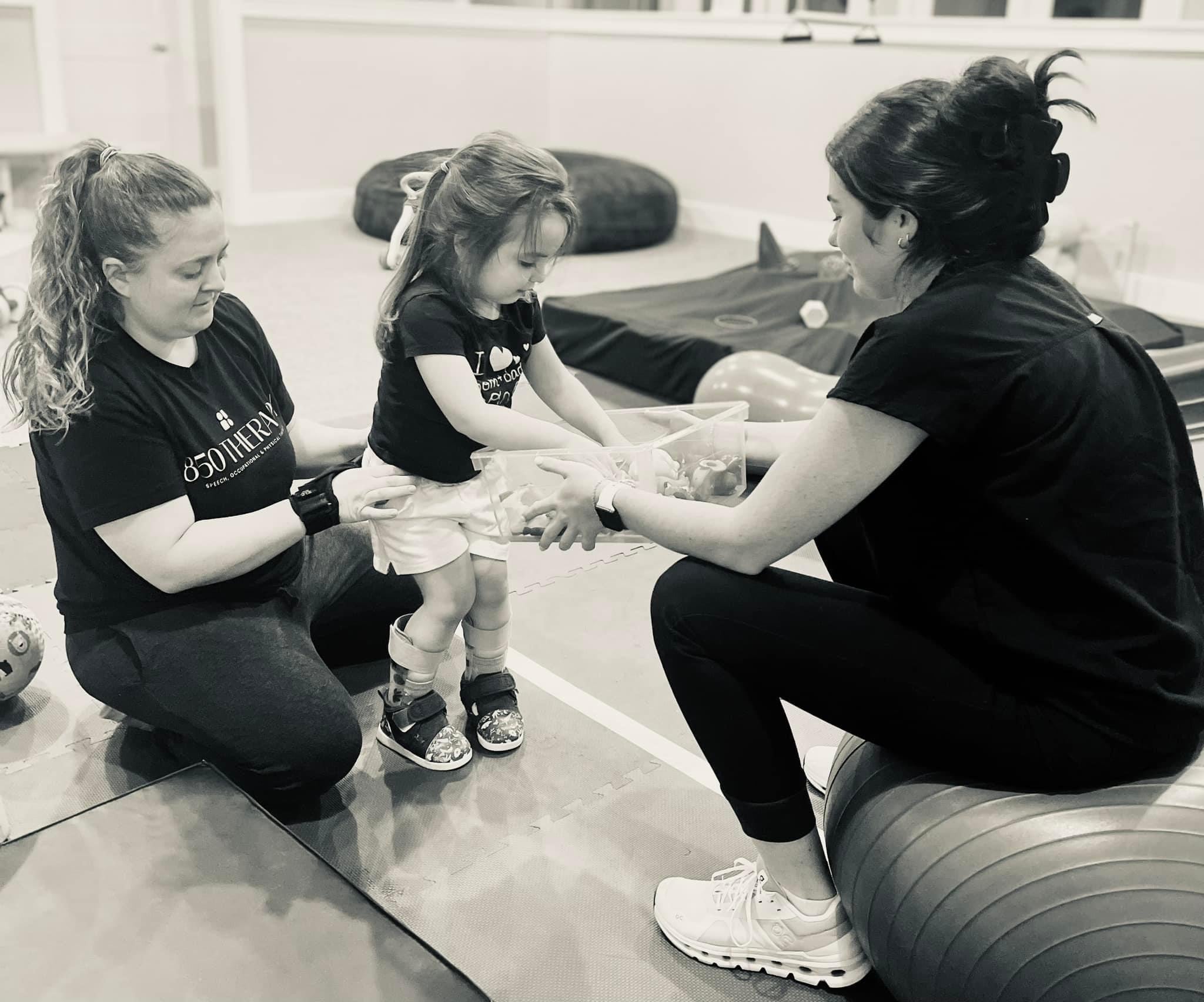After a nine-month deployment to South Korea, the 1st Cavalry Division's 2nd Brigade Combat Team on Friday will hand off its mission to its sister brigade.
The 2nd BCT was the first rotational brigade combat team in South Korea. The 1st Cavalry Division's 1st BCT replaces it and is also slated for a nine-month tour.
The move to rotational brigade combat teams came after the inactivation of 1st BCT, 2nd Infantry Division, which had been in South Korea for 50 years but was manned with soldiers who deployed individually for a year at a time.
Rotational brigades provide the Army in South Korea with whole units that train together and deploy together. At the same time, it allows the Army to maintain its presence in South Korea amid deep budget cuts that have forced the service to cut several of its brigade combat teams.
"The real big plus to having a rotational brigade … is they're fully stabilized, so we don't have to start over every month," said Maj. Gen. Ted Martin, commanding general of the 2nd Infantry Division. "What that allowed us to do was give them some very specific mission sets."
Soldiers in 2nd BCT, also known as the Black Jack brigade, benefited from tough, rigorous training, said Col. Sean Bernabe, the brigade commander.
"I'm very proud of Team Black Jack and everything we accomplished here in Korea," he said. "I think we're the luckiest brigade in the Army for having a chance to do this mission."
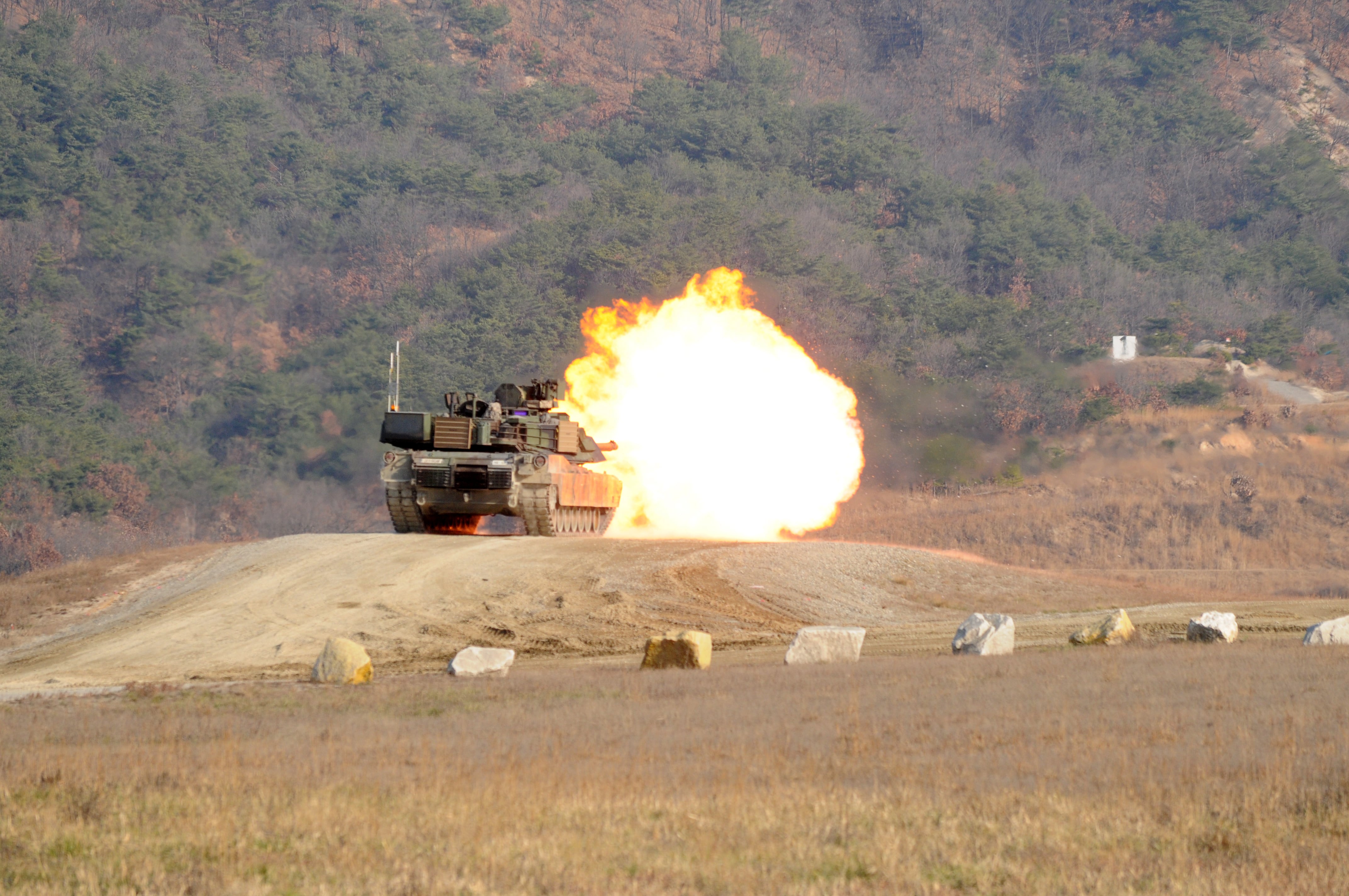
Soldiers from 2nd Brigade Combat Team, 1st Cavalry Division, conducted combined arms exercises that incorporated rotary wing and fixed-wing aircraft, artillery and mortar fire, and tanks and Bradley Fighting Vehicles.
Photo Credit: Chin-U Pak/Army
During the deployment, every battalion in 2nd BCT conducted several gunnery training exercises, qualifying on every one of their combat vehicle crews up to and including platoon live-fire events, he said. The unit also conducted combined arms exercises that incorporated rotary wing and fixed-wing aircraft, artillery and mortar fire, and tanks and Bradley Fighting Vehicles. In addition, each company commander in the brigade got a chance to command and control an event, Bernabe said.
The brigade also incorporated their Republic of Korea army partners into many training events and conducted air assault operations, he said.
Individually, soldiers got the chance to test for the Expert Infantryman Badge — "It's been years since the brigade has had the chance to do that," Bernabe said — and the Expert Field Medical Badge.
"I know our soldiers come out of this deployment very well trained, very proficient," Bernabe said. "I think for the Army, as the first rotational brigade, we helped validate this concept. I think we've shown this a strategic win for the Army."
Soldiers from the Black Jack brigade built on the partnership between the U.S. and ROK armies, Martin said.
"That was one of the concerns of our ROK allies, that these units would come in every nine months and we would lose the connectivity between the U.S. and the ROK," he said. "What we saw was it went in the opposite direction."
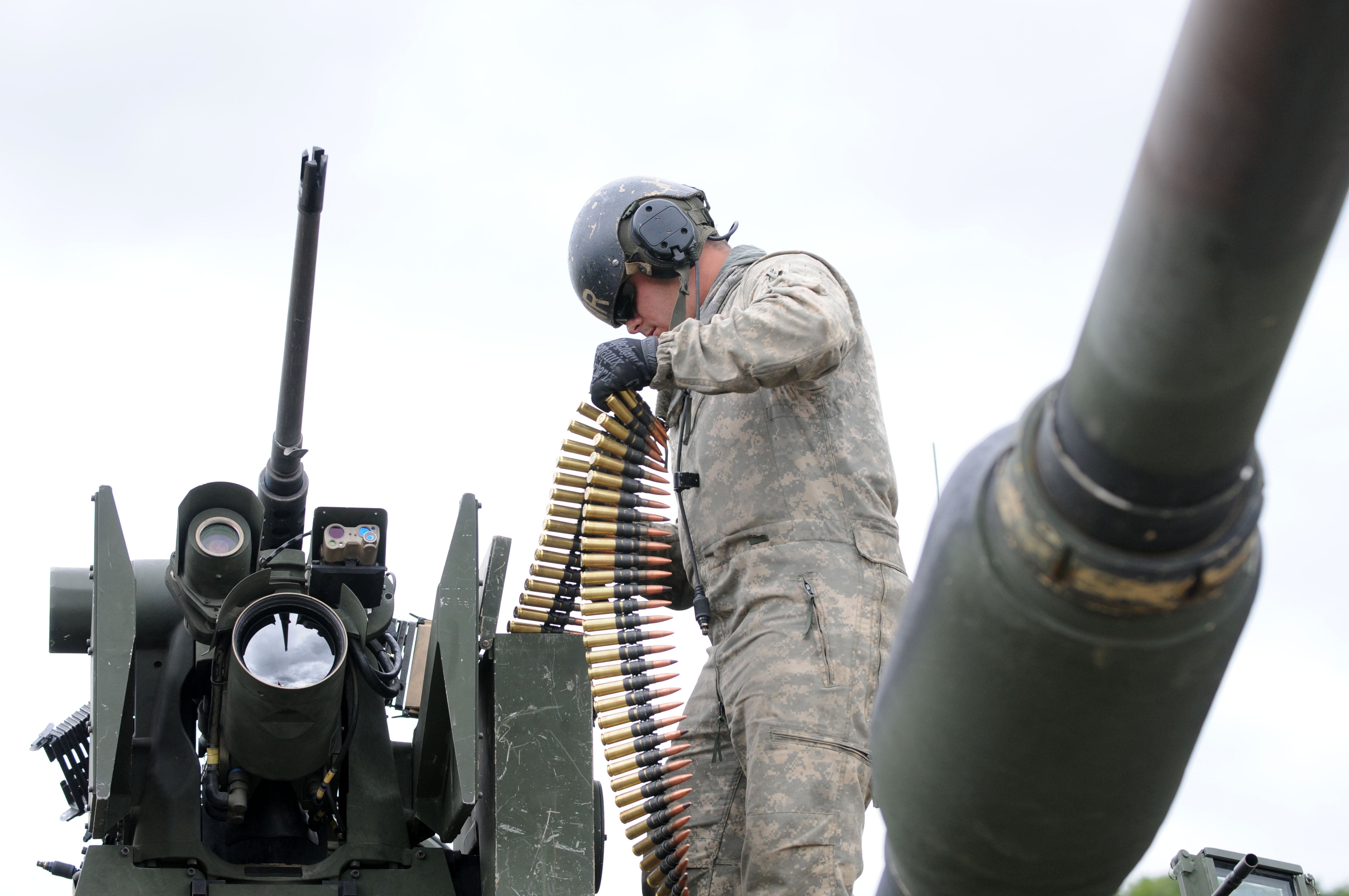
A soldier from 2nd Brigade Combat Team, 1st Cavalry Division prepares to train at the Rodriguez Live Fire Complex, South Korea, on Aug. 26.
Photo Credit: Chin-U Pak/Army
As 1st BCT, or the Ironhorse brigade, moves in to take over, Martin said he's confident they will do well, even as tensions on the Korean peninsula remain high.
"There's a saying in Korea that you need to be ready to fight tonight," Martin said. "I heard that when I was back in the States, and I wondered what that means, because we're always ready to fight tonight."
But being on the Korean peninsula has shown him that the phrase means "right here, right now, we have to be able to be ready to respond," Martin said. "There's no recall. If your [bags], your pro mask aren't ready, if you're not confident in it, there will be no time to train. You have to maintain a state of readiness."
For the soldiers of the Ironhorse brigade, this isn't their first deployment together.
Just one year ago, the brigade was regionally-aligned to Europe and supporting training and exercise missions in the region.
"Our brigade has had the opportunity to deploy to Germany twice, the Baltics, and now Korea," said Col. John DiGiambattista, commander of 1st Brigade Combat Team. "We've got first sergeants that were first sergeants in Latvia, and now they're here. We've got battalion commanders in Germany working with multinational forces there, and now they're here. It's a great opportunity, and we really feel prepared for this based on our past experience."
Soldiers in 1st BCT served as the regionally-aligned force in support of Europe from October 2013 through December 2014, DiGiambattista said. They supported multinational exercises, participated in Operation Atlantic Resolve, and deployed their tanks and Bradley Fighting Vehicles to help deter Russian aggression.
The soldiers began arriving in Korea in mid-January, and have been flowing in since.
DiGiambattista said he's looking forward to building on what 2nd BCT was able to accomplish.
"We're excited to work with a team like the ROK army, and we can't wait to get out there and train, learn from them, teach them some things, and get better together," he said. "We're here, we're ready, and we're prepared to do our job."
Michelle Tan is the editor of Army Times and Air Force Times. She has covered the military for Military Times since 2005, and has embedded with U.S. troops in Iraq, Afghanistan, Kuwait, Haiti, Gabon and the Horn of Africa.

